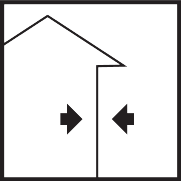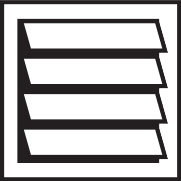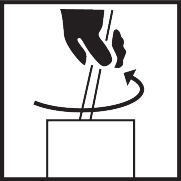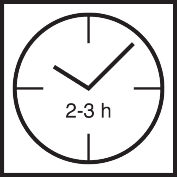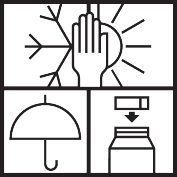Article No. 163320
Water-based, transparent sealing filler for flow coating and dipping
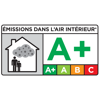
Product specifications
On delivery
The stated values represent typical product characteristics and are not to be construed as binding product specifications.
Field of application
- For use on interior and exterior wood
- Soft and hard woods
- Dimensionally stable wood building elements: e.g. windows and doors
- Wood building elements with limited dimensional stability, e.g. folding shutters, matchboarding, summerhouses
- Intermediate coat for opaque and transparent systems
- Can also be used as a base coating for protected constructions
Properties
- Excellent flow behaviour
- Good build on the surface
- Good pore wetting performance
- Excellent sanding properties
- Less discolouration due to water-soluble substances in the wood
- Reduces surface impairments caused by substances contained in specific types of wood (e.g. larch).
- Reduces the tendency of the wood to turn darker as a result of a reaction to tannic acid (e.g. oak)
-
Preparation
-
Substrate requirements
The substrate must be clean, dry, free of dust, grease and loose substances, and prepared in the correct manner.
Dimensionally stable wood building elements: wood moisture content 11-15%
Wood building elements with limited or no dimensional stability: wood moisture content max. 18%
-
Preparations
If necessary, impregnate non-resistant woods with a wood preservative* (*Use biocides safely. Always read the label and product information before use).
Prime wood surfaces.
Prime opaque (white) surfaces with Induline P-209, GW-306 white or P-201.
If necessary, protect parapet joints with Induline A-922 or Induline A-920.
-
-
Application
-
Stir well, including during application or after a break in work.
Immersion and flow coating.
A repeat application may be required in exceptional cases.
Carry out intermediate sanding before applying a final coat: P 220-240, remove sanding dust.
Seal opened containers well and use contents as soon as possible.
-
Application instructions
-
Check colour, adhesion and compatibility with the substrate by setting up a trial area.
Before coating technically modified woods and wood-based materials, apply the product to a trial surface and conduct a suitability test on the desired area of use.
Ensure good ventilation.
With water based coating systems, there is always a residual risk that substances contained in the wood will cause discolouration.
Bleeding resin is a natural phenomenon and cannot be prevented by coating measures, see BFS Code of Practice No. 18.
The product's sealing effect may be impaired if it is diluted too thinly, if the wood is too wet or if the recommended coating sequence, application volumes and drying times are not observed.
If the viscosity increases due to evaporation, this must be rectified by adding water (target viscosity: runout time approx. 30 s in a 3 mm ISO cup).
Dilute with up to 10% water to improve flow properties in unfavourable conditions (elevated temperatures, low humidity). Add water to make up for any moisture lost through evaporation.
If foaming occurs in the flow coating facility, it is recommended to add 0.1–0.2% Induline A-304.
The system finder on our website www.remmers.com contains coating recommendations for specific wood types to be used when treating windows and exterior doors.
-
Drying
Dust-dry: after approx. 1 hour
Ready for sanding and overcoating: after approx. 2 - 3 hours
(at 23 °C and 50% RH)
If forced drying is used, ready for sanding and overcoating: after approx. 20 minutes flash-off zone (at approx. 20 °C and 65 - 75% RH) / 60 minutes drying phase (approx. 45 °C, 1 m/s air circulation) / 20 minutes cooling phaseLow temperatures, poor ventilation and high humidity delay drying.
-
Thinning
Dilute with water if necessary (max. 10%).
-
Working tools / cleaning
-
Flow coating facility, dipping tank
-
Clean tools with water or Aqua RK-898 Cleaning Concentrate immediately after use.
Ensure that any residue from cleaning is disposed of correctly.
-
Storage / shelf life
-
If stored unopened in its original container in a cool, dry place and protected against frost, the product will keep for at least 12 months.
-
Usage
-
80 - 120 ml/m² per coat
(equivalent to wet film thickness: 80 - 120 µm, dry film thickness: approx. 20 µm) -
The application rate is dependent on the type of wood and the absorbency of the substrate.
-
General information
-
Observe the information sheets “Upkeep and Maintenance of Dipping Tanks and Flow Coating Facilities” and “Information on Workplace Hygiene”.
-
-
Disposal instructions
-
Larger quantities of leftover product should be disposed of in the original containers in accordance with the applicable regulations. Completely empty, clean containers should be recycled. Do not dispose of together with household waste. Do not allow to enter the sewage system. Do not empty into drains.
-
-
Safety / regulations
-
For further information on the safety aspects of transporting, storing and handling the product and on disposal and environmental matters, please see the current Safety Data Sheet.
-

